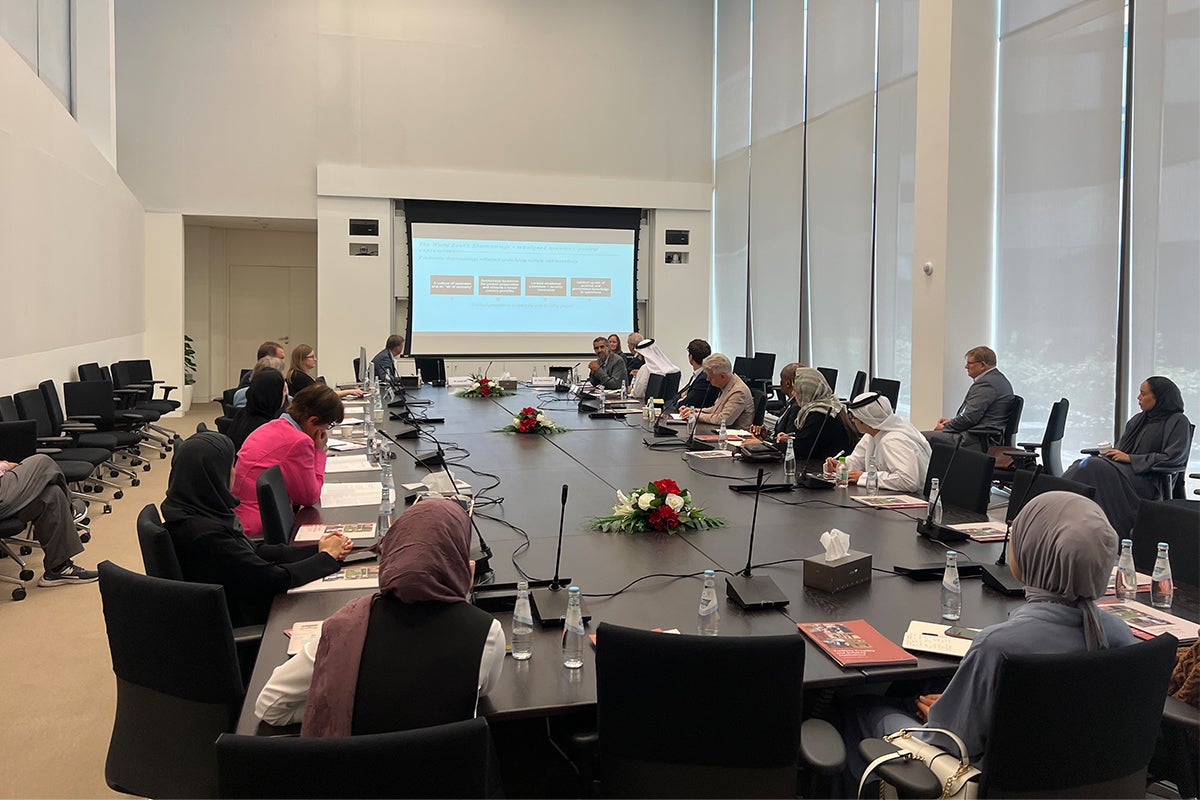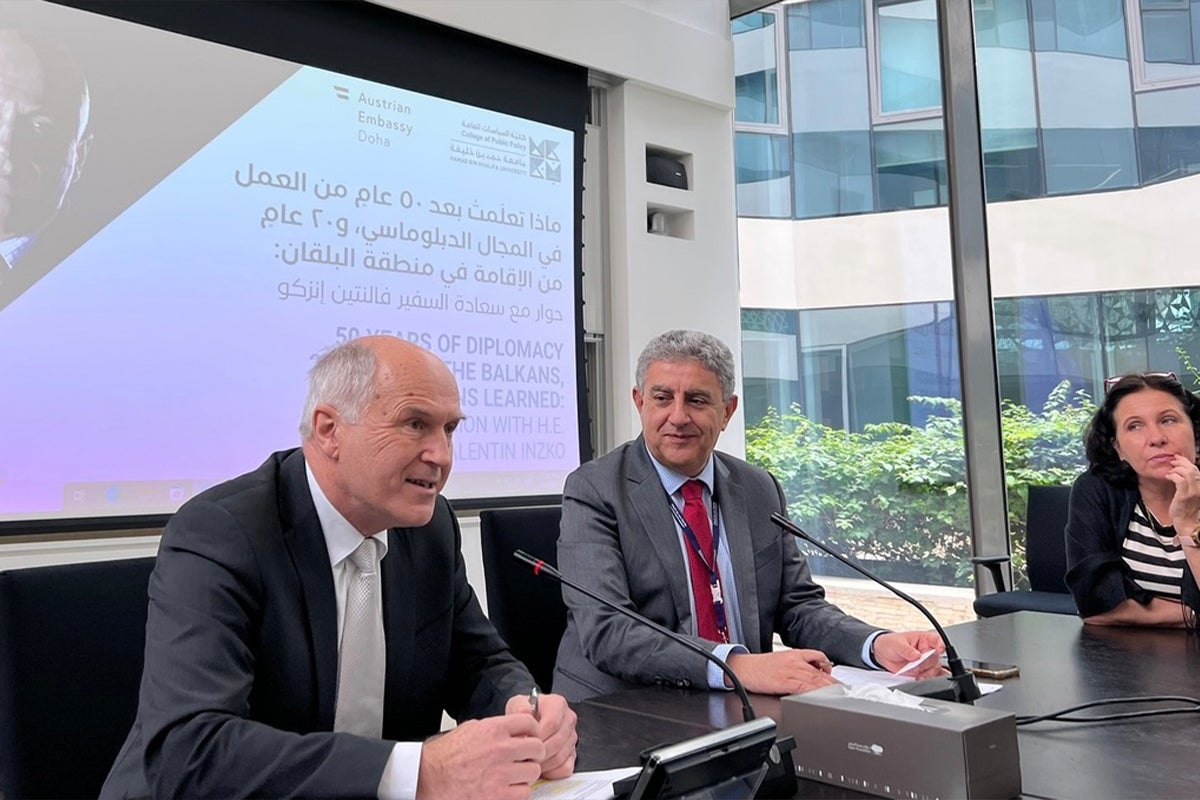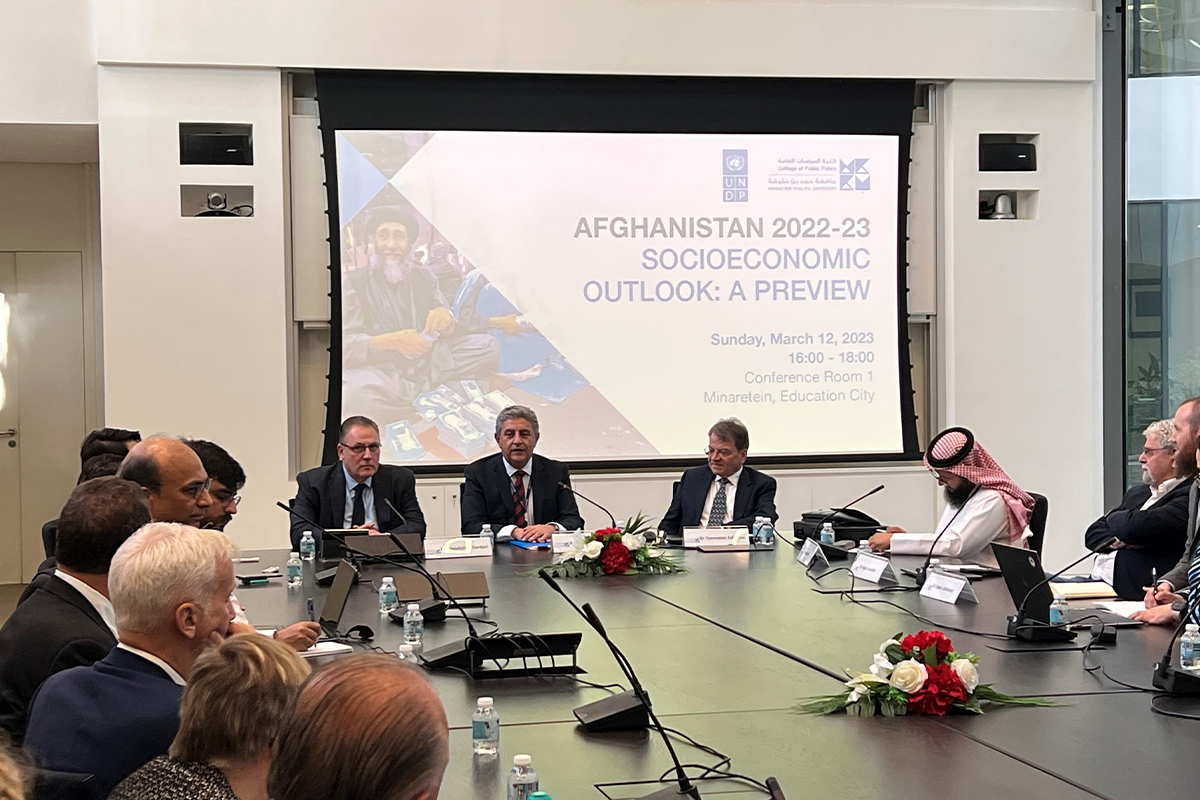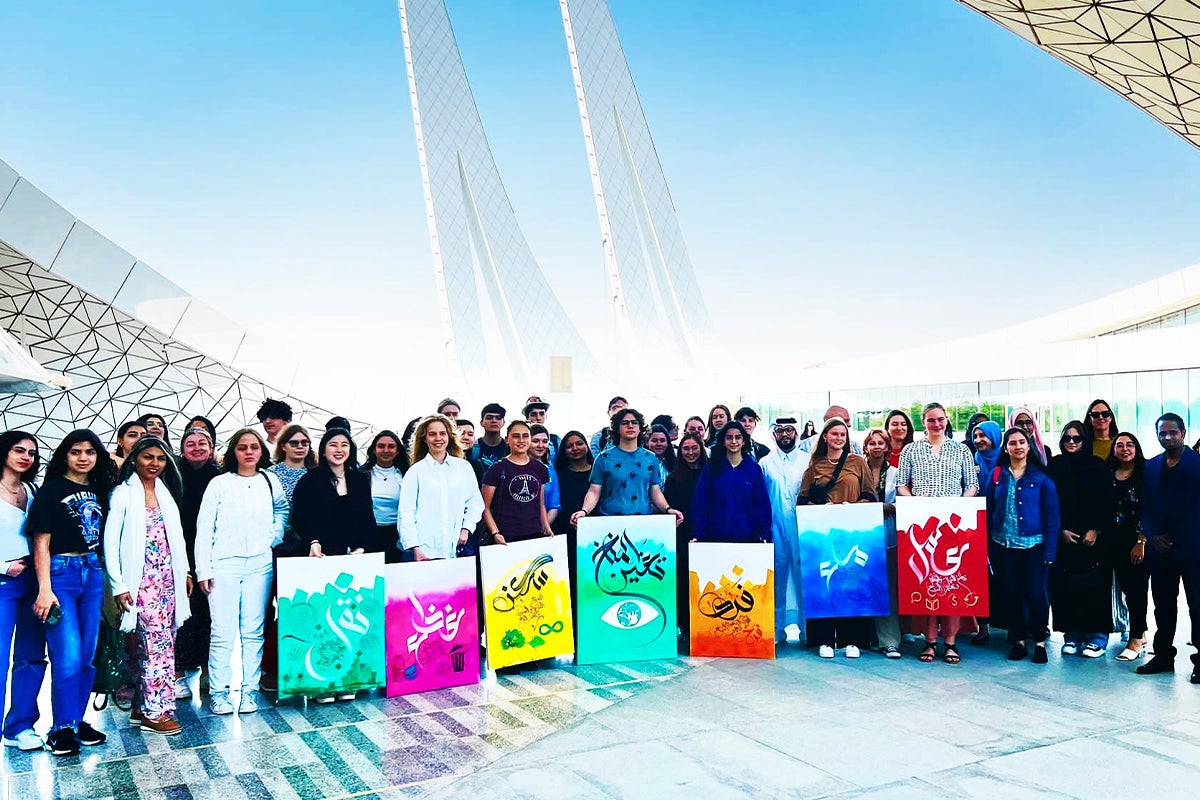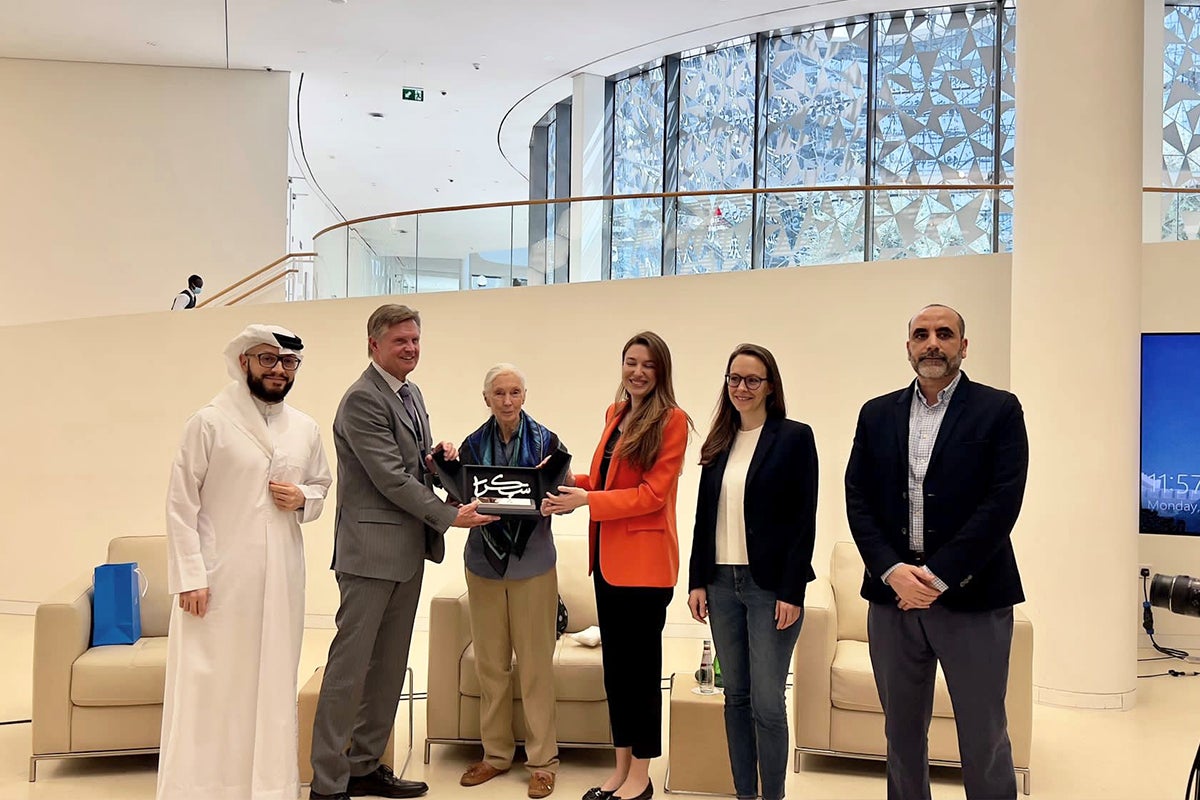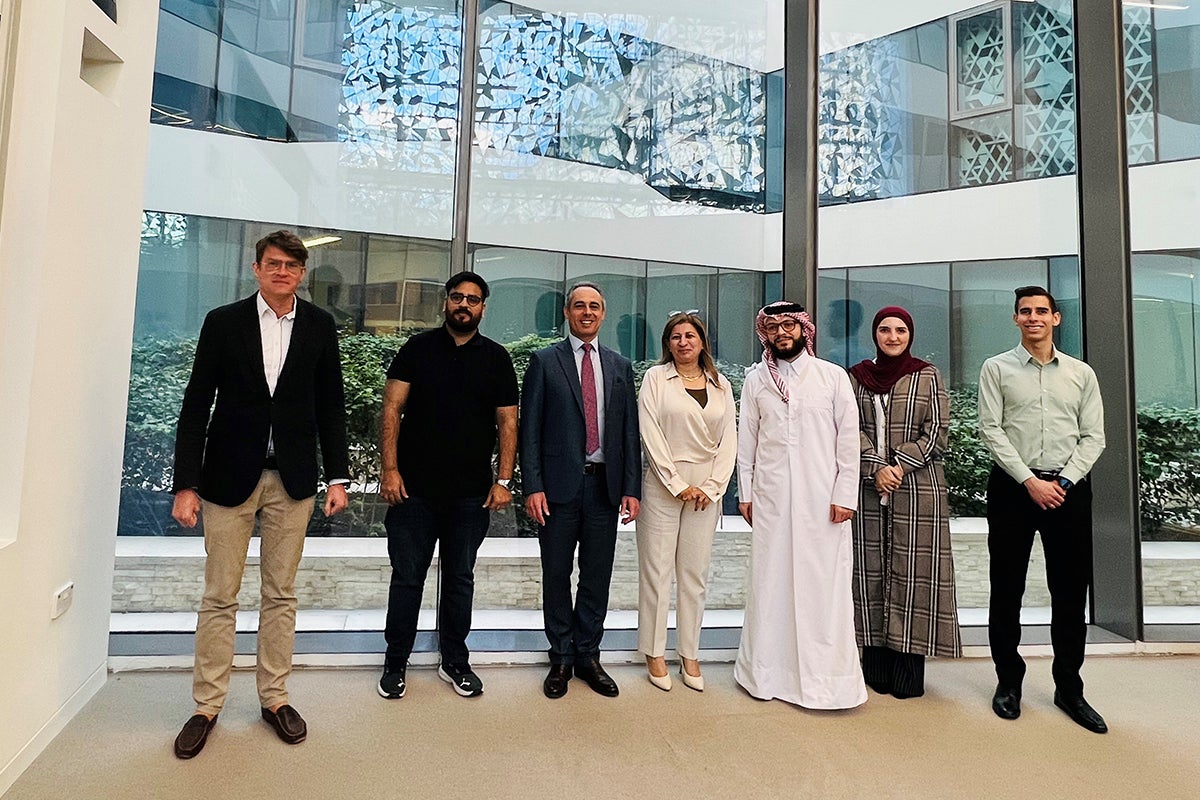Discussions focused on Stimson Center report co-authored by HBKU students which addressed global challenges ahead of UN Summit of the Future
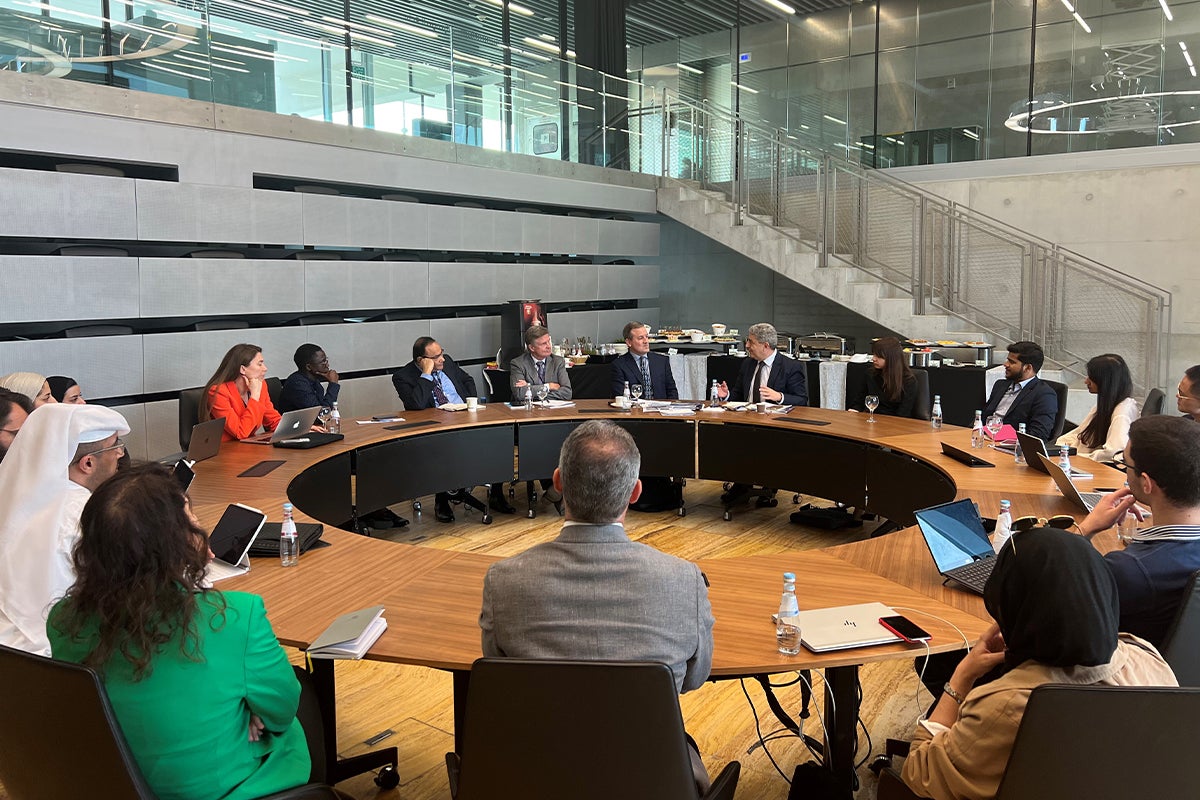
Hamad Bin Khalifa University’s (HBKU) College of Public Policy (CPP) organized a joint roundtable with the Stimson Center to discuss a recent report authored by Richard Ponzio, Director of the Global Governance, Justice & Security Program and Senior Fellow at the Stimson Center, in collaboration with HBKU students.
Sultan Barakat, Professor, CPP, acted as the discussant for the report that outlined three new Frameworks for International Cooperation proposed by the report ahead of next year’s united nation summit of the future.
The roundtable provided an opportunity for local and international experts to discuss the report's findings and recommendations with other experts and stakeholders, allowing the organizations to engage with the broader community and promote dialogue and collaboration around issues related to global cooperation and collective action.
Titled “Rethinking Global Cooperation: Three New Frameworks for Collective Action in an Age of Uncertainty”, the report discusses the impacts of climate change and other global challenges, including the COVID-19 pandemic and ongoing conflicts, that have hindered progress towards the Sustainable Development Goals. It also proposed elements for each of these global policy frameworks, as well as the potential barriers that need to be overcome.
The report also highlighted the importance of meaningful civil society engagement in preparations for the Summit of the Future to ensure well-informed decisions, broad social ownership, and a sense of co-responsibility in supporting their implementation.
HBKU students Haya Al-Thani, CPP, and Sharique Umar, HBKU’s College of Islamic Studies, co-authored the report alongside researchers from the Stimson Center and The New School’s Graduate Program in International Affairs.






